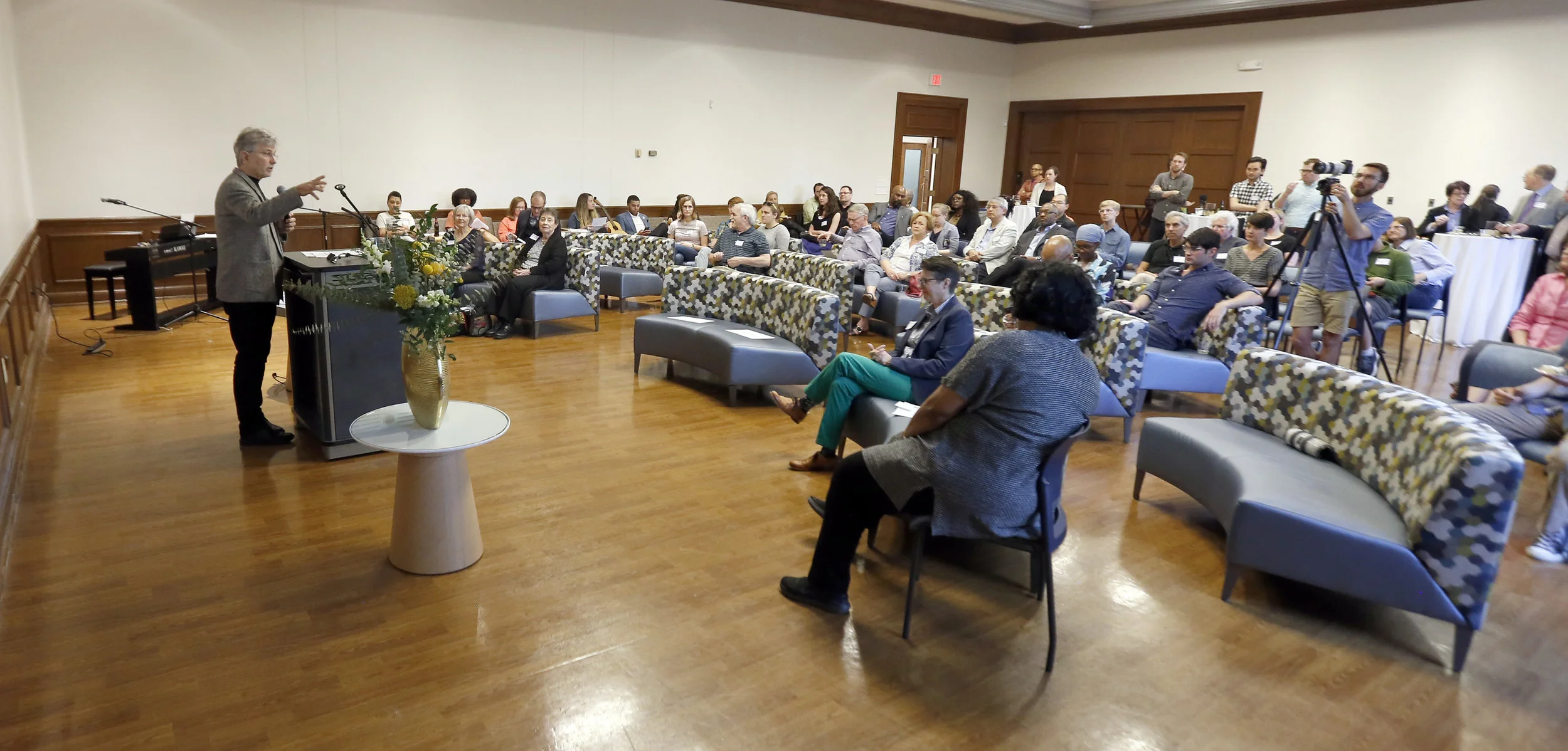Dr. Snarr is the Associate Dean for Academic Affairs and an Associate Professor of Ethics and Society. A Christian social ethicist, Dr. Snarr describes the misfits of religious traditions who are coming together for the healing and wholeness of the world. The following are her edited remarks at the opening of the inaugural event on April 10, 2019.
Read MoreMarcus Trammell is the Associate Director of the Wendland-Cook Program in Religion and Justice. A graduate of Vanderbilt Divinity School and a seasoned community organizer, Trammell shared his passion for justice and his firm belief that something better is possible.
Read MoreWhen we say justice–and this is the important thing–what we're really talking about is building the community. Justice is more than a lot of things we often connect with this term. It is building relationships. It is getting involved. It's taking a stand. It's transforming the status quo.
Read MoreOur April 10th reception featured guest of honor Barbara Wendland, who provided the gift to found the Vanderbilt Divinity School’s newest program.
Read MoreWhat might we learn if we understand Jesus’ death and resurrection in the context of terrorism?
Read MoreSince poverty and wealth are not only matters of money but also of power, it is time to move from charity and advocacy to what I am calling "deep solidarity."
Read MoreRather than asking how much authority the Bible should have in an ideal world, a better question would be what role the Bible actually plays in people's lives.
Read MoreJoerg Rieger and Peter Laarman unpack structural poverty and to address religion’s stake in the dramatic growth of economic inequality in American society.
Read MoreUnlike in the Roman Empire, many of our images of Mammon resemble our images of God. Instead of Caesar’s image that was imprinted on Roman coins, US Dollar bills bear an image of the Trinity and the words “In God We Trust.”
Read MoreSome people of faith are too timid when it comes to conflict, some are too eager to embrace it, and for whatever remains we have conflict resolution. This conclusion, however, is mistaken.
Read MoreGood news to the poor and freedom for the oppressed requires a more holistic response. This is what we are calling deep solidarity.
Read MoreThe future of the poor, of racial and sexual minorities, of working people (to which 99 percent of us belong), and of the environment, is never entirely in the hands of individuals, no matter how powerful they may be at the moment.
Read MoreA nagging problem remains that those who talk about stratification and the poverty line are unable or unwilling to address: What about the relationship between the classes?
Read MoreAs we are being bombarded with enticements that reach all the way into religious worlds, how can religious communities and their theologies escape being shaped by the neoliberal capitalist economy?
Read MoreAs people of faith, we need to learn again what it means to follow the prophet Jeremiah's example of refusing to say "'Peace, peace,' when there is no peace."
Read MoreDeep solidarity is not a matter of the relatively privileged trying to help the underprivileged and to solve their problems; rather, it is a matter of understanding that nothing will change unless we are addressing the problems of the world together.
Read More
















